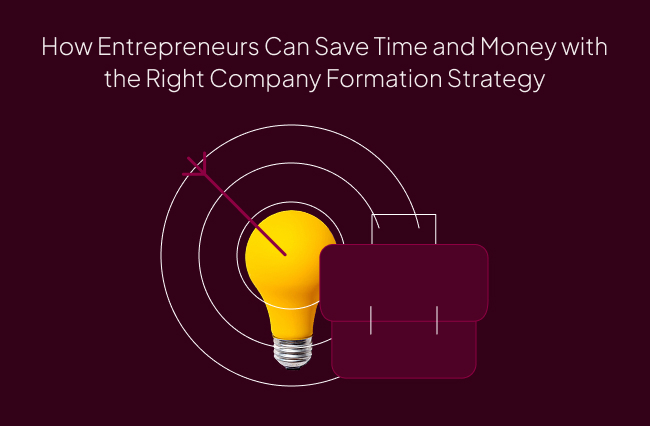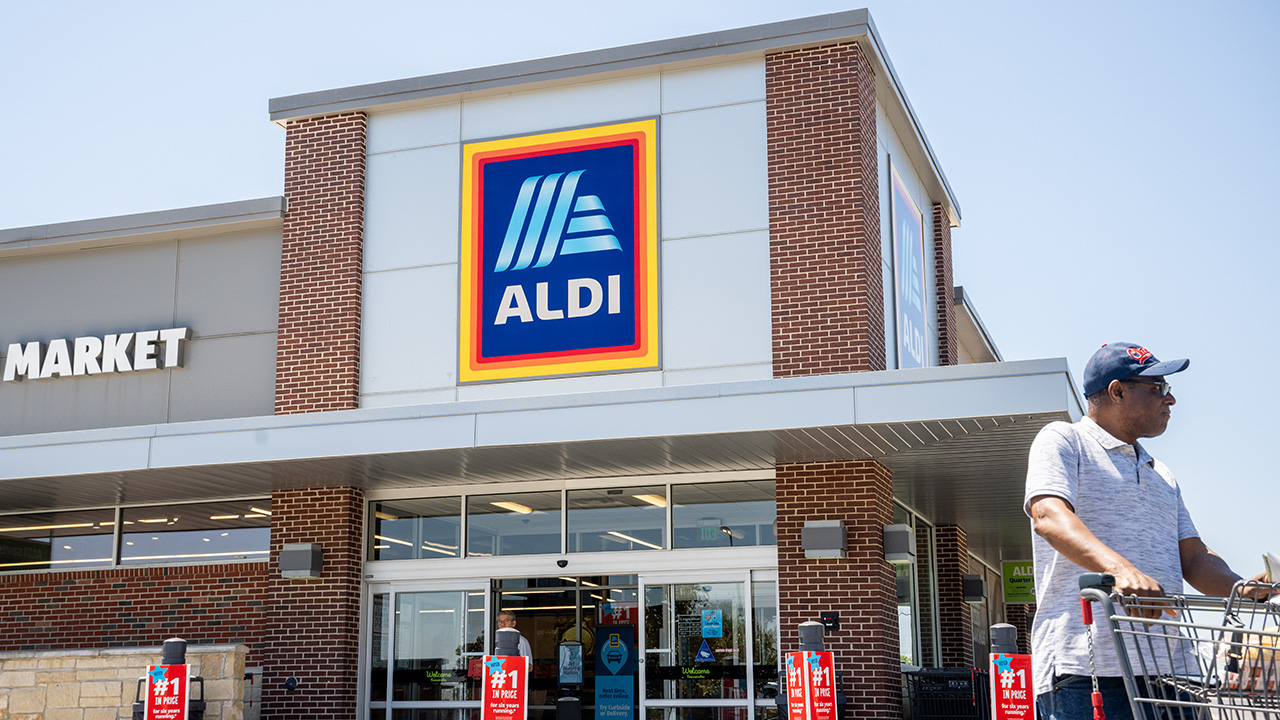How Entrepreneurs Can Save Time and Money with the Right Company Formation Strategy?

Entrepreneurship is such an exhilarating journey. The excitement of creating something from scratch and turning a dream into a genuine, functioning company is a remarkable aspiration. However, the early stages of starting a business, especially in a new country or unfamiliar environment, can be challenging. Time constraints, budget limitations, regulatory hurdles, and administrative complexities can make it challenging to navigate, even for the most promising ideas.
However, selecting the right company formation strategy can significantly alleviate these burdens. Whether you’re launching a tech startup in Estonia, a consultancy firm in Germany, or a trading company in Cyprus, a cost-effective business setup and efficient company registration can position you for long-term success.
In this article, we will explore how entrepreneurs can save both time and money during the startup phase by making strategic decisions, selecting the proper jurisdiction, being aware of compliance requirements, and seeking professional support.
The Importance of Strategic Company Formation:
Launching a new venture involves more than merely registering a name or opening a bank account. It entails selecting the appropriate startup company formation strategy that aligns with your business objectives, growth plans, and operational needs.
Here are key reasons why strategy matters
Jurisdiction Selection Impacts Costs and Flexibility:
The country you choose to incorporate in will affect everything from tax obligations to administrative costs. For example:
- Estonia’s e-Residency program offers streamlined digital company registration, making it a favourite for digital nomads and start-ups.
- Ireland is renowned for its low corporate tax rate of 12.5% and investor-friendly business environment.
- The Netherlands offers fast-track incorporation and access to the EU market.
Selecting the proper jurisdiction can lead to substantial cost savings and enhanced administrative efficiency. You can learn more about jurisdiction-specific benefits in our jurisdiction comparison section.
Corporate Structure Optimization:
Should you register as a sole trader, limited liability company (LLC), or joint-stock company? This decision affects taxation, liability, and compliance requirements. Many start-ups benefit from forming an LLC due to its flexibility and reduced legal risk. However, start-ups aiming for funding may prefer corporations for equity issuance.
Saving Time: Streamlining the Company Formation Process:
Efficient company registration processes not only help you go to market faster but also free up resources for product development and marketing.
Use Digital Platforms and Services:
Digital tools allow entrepreneurs to complete documentation, identity verification, and compliance checks remotely. Estonia’s e-Residency platform is a prime example of how digital-first governments can help reduce bureaucratic red tape.
Similarly, using cloud-based accounting tools like Xero or Quickbooks early on ensures that your business remains compliant and audit-ready with minimal manual effort.
Leverage Local Experts and Formation Services:
Trying to interpret foreign legal jargon or navigate tax codes independently can be a waste of time and costly. Engaging a local expert or using a professional formation agency can save you weeks, if not months, of back-and-forth with regulators.
Our company formation packages are designed to do just that & handle the heavy lifting so you can focus on growing your business.
Saving Money: Reducing Setup and Operational Costs:
Launching lean doesn’t mean cutting corners. It means being smart about where you allocate funds and how you structure your business.
Avoiding Hidden Fees
Company formation often comes with hidden costs: licensing fees, notary fees, translation costs, and government filing charges. These vary by country. For example, registering in France may require a certified translation of your documents and multiple notary appointments, whereas incorporating in Latvia is far more streamlined.
You can explore our detailed country-specific guides to compare the total cost of setting up in different European countries.
Tax Efficiency Through Jurisdiction Planning:
Some jurisdictions offer tax incentives or startup subsidies:
- Malta provides tax refunds to shareholders, effectively reducing the corporate tax rate to 5%.
- Portugal offers Non-Habitual Resident (NHR) status for tax reduction on personal income.
- Cyprus offers an attractive IP box regime, making it an ideal destination for tech entrepreneurs.
These incentives can significantly reduce your tax burden. But understanding and leveraging them requires the right formation strategy.
Compliance: Avoiding Costly Mistakes:
Lack of compliance is one of the most common reasons startups burn time and money early on. Whether it’s failing to meet local filing deadlines or misunderstanding VAT registration, the consequences are often financial penalties or operational delays.
Understand Local Reporting Requirements:
Every country has its compliance timeline. For instance, in Spain, you are required to file annual accounts with the Mercantile Registry. In Ireland, annual returns must be submitted to the Companies Registration Office (CRO). Missing these can incur fines or legal complications.
Our compliance services are designed to keep you on track.
Avoid Rework by Getting It Right the First Time:
Altering your business structure after registration or rectifying paperwork errors can be labour-intensive and costly. Seeking expert assistance during the planning phase ensures that your setup is correct from the outset, thus saving both time and money.
Banking, VAT, and Legal Essentials:
Your company formation strategy should also include securing banking access, registering for VAT, and obtaining the necessary legal documentation, all of which are required for operating legally in most jurisdictions.
Open a Business Bank Account Early:
Without a business bank account, you can’t accept payments or pay suppliers. In some countries, like Germany or Belgium, it’s a prerequisite for incorporation. You’ll need proof of business address, incorporation documents, and in some cases, a personal visit. Our banking solutions simplify this by pairing you with trusted local partners.
Register for VAT When Required:
In the EU, VAT registration is mandatory if your sales exceed a specific threshold. For example, in France, the threshold is €85,800, while in Germany it’s €22,000. Non-compliance can lead to audits and fines.
Utilise online calculators and guides, such as this VAT registration resource, to estimate your obligations.
Mistakes to Avoid:
DIY Incorporation Without Understanding Local Laws:
Unless you’re an expert in international corporate law, going solo can result in rejections, delays, or compliance failures.
Choosing the Wrong Jurisdiction for Your Business Model:
A retail startup may benefit from low VAT rates, while a fintech company may need countries with advanced regulatory frameworks.
Delaying Compliance Tasks:
Post-incorporation tasks, such as VAT, banking, and accounting, are often overlooked but are critical, nonetheless.
Conclusion
An innovative company formation strategy is one of the best investments a founder can make. It saves time by reducing administrative delays and avoiding costly mistakes that could derail your business later. Here’s what you can do today: Identify your business goals and match them with the proper jurisdiction., Seek professional help to ensure legal, tax, and administrative alignment, and use digital tools and platforms to simplify the registration process. Your entrepreneurial journey deserves a strong foundation. Let us help you build it with clarity, speed, and cost-efficiency.
The post How Entrepreneurs Can Save Time and Money with the Right Company Formation Strategy? appeared first on Open a European Company.
What's Your Reaction?
 Like
0
Like
0
 Dislike
0
Dislike
0
 Love
0
Love
0
 Funny
0
Funny
0
 Angry
0
Angry
0
 Sad
0
Sad
0
 Wow
0
Wow
0



















































.png?Expires=1838763821&Key-Pair-Id=K2ZIVPTIP2VGHC&Signature=IO0~CT3pU-TcxGc~yoZSmoQx23MZVuK-~4jSii~NKEblRmyO3el7NXPu~Rh1o23voASg7hlcHLw4kvQuDK1jssEhcjoNBBvEpZ~GGOAU6yosBhpHpeF179F~h7i6VxmsBNh9gtTutkoqY73O2YCFey~IAqSzKbBqETP1kP9cAg1916Z1YkJJs-5MliMrkZ5d7-mWGLbpHp2wGj2VlMph8XzYlL4~y1O7fB~JdIS~Rs4RMRs2x0WT1qUIpHAsf3GdwtOyAmKFSpIg8xCyNGZZ5h~13nXlmpd7uPvW8tBfttpG9pFTqcway-uch5WyfHOEfi7UlJCOWrr6fCYY5PMgSg__)







